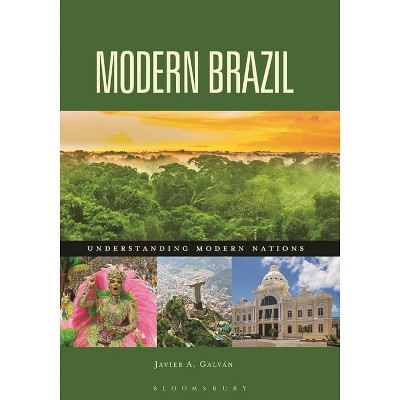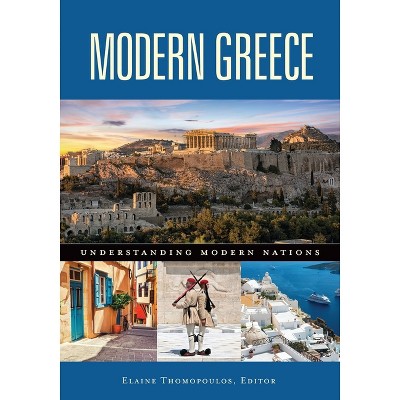Modern Mexico - (Understanding Modern Nations) by James Huck (Hardcover)

About this item
Highlights
- This single volume reference resource offers students, scholars, and general readers alike an in-depth background on Mexico, from the complexity of its pre-Columbian civilizations to its social and political development in the context of Western civilization.
- About the Author: James D. Huck Jr., PhD, is assistant director, graduate advisor, and administrative assistant professor at the Stone Center for Latin American Studies at Tulane University in New Orleans, LA.
- 384 Pages
- History, Latin America
- Series Name: Understanding Modern Nations
Description
About the Book
This single volume reference resource offers students, scholars, and general readers alike an in-depth background on Mexico, from the complexity of its pre-Columbian civilizations to its social and political development in the context of Western civilization.
How did modern Mexico become a nation of multicultural diversity and rich indigenous traditions? What key roles do Mexico's non-Western, pre-Columbian indigenous heritage and subsequent development as a major center in the Spanish colonial empire play the country's identity today? How is Mexico today both Western and non-Western, part Native American and part European, simultaneously traditional and modern?
Modern Mexico is a thematic encyclopedia that broadly covers the nation's history, both ancient and modern; its government, politics, and economics; as well as its culture, religion traditions, philosophy, arts, and social structures. Additional topics include industry, labor, social classes and ethnicity, women, education, language, food, leisure and sport, and popular culture. Sidebars, images, and a Day in the Life feature round out the coverage in this accessible, engaging volume. Readers will come to understand how Mexico and the Mexican people today are the result of the processes of transculturation, globalization, and civilizational contact.
- Explains how Mexico's modern identity is defined by its status as an economically developing country sharing a large contiguous land border with a highly developed global superpower, the United States
- Demonstrates the richness and global reach of Mexico's cultural and linguistic influence through the Western Hemisphere
- Enables readers to understand how Mexico's history has been shaped by fierce revolutionary nationalism--a tendency that is now tempered by a desire for integration and leadership in the global community of nations
- Includes "Day in the Life" features that portray the specific daily activities of various people in the country, from high school students to working class people to professionals, thereby providing readers insight into daily life in the country
Book Synopsis
This single volume reference resource offers students, scholars, and general readers alike an in-depth background on Mexico, from the complexity of its pre-Columbian civilizations to its social and political development in the context of Western civilization.
How did modern Mexico become a nation of multicultural diversity and rich indigenous traditions? What key roles do Mexico's non-Western, pre-Columbian indigenous heritage and subsequent development as a major center in the Spanish colonial empire play the country's identity today? How is Mexico today both Western and non-Western, part Native American and part European, simultaneously traditional and modern? Modern Mexico is a thematic encyclopedia that broadly covers the nation's history, both ancient and modern; its government, politics, and economics; as well as its culture, religion traditions, philosophy, arts, and social structures. Additional topics include industry, labor, social classes and ethnicity, women, education, language, food, leisure and sport, and popular culture. Sidebars, images, and a Day in the Life feature round out the coverage in this accessible, engaging volume. Readers will come to understand how Mexico and the Mexican people today are the result of the processes of transculturation, globalization, and civilizational contact.Review Quotes
"If there is a better one-volume reference to Mexico than this, it would be hard to find. . . . It is more than worth its price . . . . Useful, relevant, and quite instructive." --ARBA
"A well-organized, broad overview of the country vital to the North American experience. . . . Summing Up: Recommended. Community college and beginning undergraduate collections." --ChoiceAbout the Author
James D. Huck Jr., PhD, is assistant director, graduate advisor, and administrative assistant professor at the Stone Center for Latin American Studies at Tulane University in New Orleans, LA.










